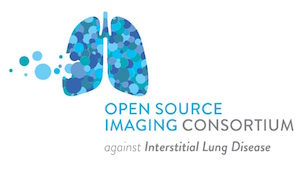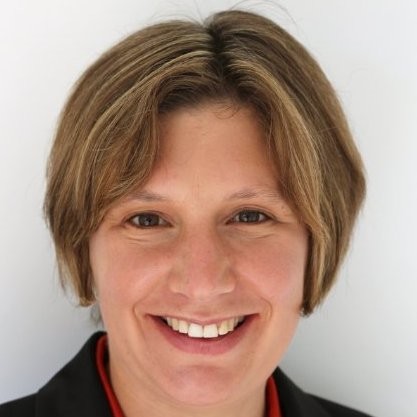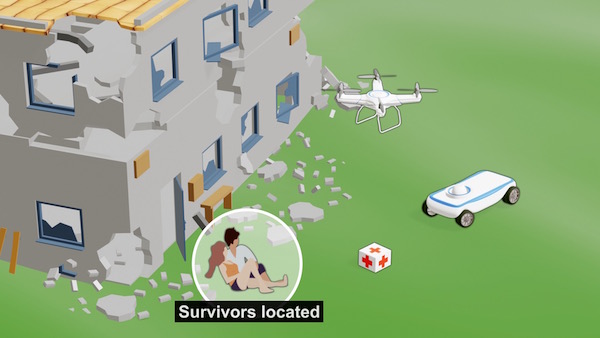machine learning
See the following -
Health Data Should Belong to Patients, Topol Argues
The digital revolution’s merging of medicine with high tech has unleashed massive amounts of data about the most intimate details of our life — what we ate, how far we walked, how fast our heart beat. As a result, what constitutes health data is no longer so easily defined. Neither is how the information is used. With rise of machine learning, those questions are becoming increasingly urgent, especially with the move of high tech companies into the clinical sphere, according to health data transparency advocate Dr. Eric Topol...
- Login to post comments
Health Tap: Intelligent Interface for Patients
 allows patients to connect with doctors online, and additionally hosts an enormous repository of doctors’ answers to health questions. In addition to its sheer size and its unique combination of services, HealthTap is ahead of most other health care institutions in its use of data. I talked with founder and CEO Ron Gutman about a new service, Dr. AI, that triages the patient and guides her toward a treatment plan: online resources for small problems, doctors for major problems, and even a recommendation to head off to the emergency room when that is warranted. The service builds on the patient/doctor interactions HealthTap has offered over its six years of operation, but is fully automated...
allows patients to connect with doctors online, and additionally hosts an enormous repository of doctors’ answers to health questions. In addition to its sheer size and its unique combination of services, HealthTap is ahead of most other health care institutions in its use of data. I talked with founder and CEO Ron Gutman about a new service, Dr. AI, that triages the patient and guides her toward a treatment plan: online resources for small problems, doctors for major problems, and even a recommendation to head off to the emergency room when that is warranted. The service builds on the patient/doctor interactions HealthTap has offered over its six years of operation, but is fully automated...
- Login to post comments
HealthTap Unveils “HealthTap Cloud™”
 HealthTap...today unveiled HealthTap Cloud™, a first-of-its-kind development platform that enables health developers to build applications more efficiently and cost effectively. HealthTap Cloud™ is powered by HOPES™, the world’s first Health Operating System, which connects the entire continuum of care to each person’s unique Personal Health Record (PHR). Application Programming Interfaces (APIs) and Software Development Kits (SDKs) that help developers build highly personalized web, iOS, and Android apps are available with HealthTap Cloud™...
HealthTap...today unveiled HealthTap Cloud™, a first-of-its-kind development platform that enables health developers to build applications more efficiently and cost effectively. HealthTap Cloud™ is powered by HOPES™, the world’s first Health Operating System, which connects the entire continuum of care to each person’s unique Personal Health Record (PHR). Application Programming Interfaces (APIs) and Software Development Kits (SDKs) that help developers build highly personalized web, iOS, and Android apps are available with HealthTap Cloud™...
- Login to post comments
HIMSS20 - The Open Health Companies That Were Going to Participate

The HIMSS20 conference has been cancelled as a result of concerns due to the global spread of the coronavirus. Although the conference is not taking place, we have decided to publish a variation on our annual HIMSS conference Open Health Guide. Open Health News has published Open Health Guides to HIMSS conferences almost since our founding. They were widely read with thousands of reads each. So they are now a tradition for our publication and there were many great open health companies that were going to have exhibits at the HIMSS20 conference as well as presentations. Dominant health IT vendors spend over a billion dollars a year in PR and marketing for their lock-in solutions. Unable to match that kind of PR power, the annual HIMSS conference has been one of the few opportunities where Open Health companies have had to present their solutions to the world.
- The Future Is Open
- Login to post comments
Hot Programming Trends from 2016
 Technology is constantly moving forward—well, maybe not always forward, but always moving. Even for someone who keeps an eye on the trends and their effect on programmers, discerning exactly where things are headed can be a challenge. My clearest glimpse into open source programming trends always comes in the fall when I work with my fellow chairs, Kelsey Hightower and Scott Hanselman, and our fantastic programming committee to sculpt the coming year's OSCON (O'Reilly Open Source Convention). The proposals that we get and the number focused on specific topics turn out to be good indicators of hot trends in the open source world. What follows is an overview of the top programming trends we saw in 2016...
Technology is constantly moving forward—well, maybe not always forward, but always moving. Even for someone who keeps an eye on the trends and their effect on programmers, discerning exactly where things are headed can be a challenge. My clearest glimpse into open source programming trends always comes in the fall when I work with my fellow chairs, Kelsey Hightower and Scott Hanselman, and our fantastic programming committee to sculpt the coming year's OSCON (O'Reilly Open Source Convention). The proposals that we get and the number focused on specific topics turn out to be good indicators of hot trends in the open source world. What follows is an overview of the top programming trends we saw in 2016...
- Login to post comments
How Machine Learning May Revolutionize Medicine
 Doctors will one day be able to more accurately predict how long patients with fatal diseases will live. Medical systems will learn how to save money by skipping expensive and unnecessary tests. Radiologists will be replaced by computer algorithms. These are just some of the realities patients and doctors should prepare for as “machine learning” enters the world of medicine, according to Dr. Ziad Obermeyer, an assistant professor at Harvard Medical School, and Dr. Ezekiel Emanuel of the University of Pennsylvania, who recently coauthored an article in the New England Journal of Medicine on the topic...
Doctors will one day be able to more accurately predict how long patients with fatal diseases will live. Medical systems will learn how to save money by skipping expensive and unnecessary tests. Radiologists will be replaced by computer algorithms. These are just some of the realities patients and doctors should prepare for as “machine learning” enters the world of medicine, according to Dr. Ziad Obermeyer, an assistant professor at Harvard Medical School, and Dr. Ezekiel Emanuel of the University of Pennsylvania, who recently coauthored an article in the New England Journal of Medicine on the topic...
- Login to post comments
How Online Shopping Makes Suckers of Us All
 Will you pay more for those shoes before 7 p.m.? Would the price tag be different if you lived in the suburbs? Standard prices and simple discounts are giving way to far more exotic strategies, designed to extract every last dollar from the consumer. As Christmas approached in 2015, the price of pumpkin-pie spice went wild. It didn’t soar, as an economics textbook might suggest. Nor did it crash. It just started vibrating between two quantum states. Amazon’s price for a one-ounce jar was either $4.49 or $8.99, depending on when you looked. Nearly a year later, as Thanksgiving 2016 approached, the price again began whipsawing between two different points, this time $3.36 and $4.69...
Will you pay more for those shoes before 7 p.m.? Would the price tag be different if you lived in the suburbs? Standard prices and simple discounts are giving way to far more exotic strategies, designed to extract every last dollar from the consumer. As Christmas approached in 2015, the price of pumpkin-pie spice went wild. It didn’t soar, as an economics textbook might suggest. Nor did it crash. It just started vibrating between two quantum states. Amazon’s price for a one-ounce jar was either $4.49 or $8.99, depending on when you looked. Nearly a year later, as Thanksgiving 2016 approached, the price again began whipsawing between two different points, this time $3.36 and $4.69...
- Login to post comments
How Robotics, Apps Can Improve Quality of Life
Recently, I worked a booth for the Southwest ADA Center at the annual Rehabilitation Engineering & Assistive Technology conference held in New Orleans. The event was filled with interactive exhibits and workshops on robotics, artificial intelligence and technologies for people with disabilities. One researcher was gathering data for a robotics engineering center working on a therapy support robot. She brought up the telepresence robot, PadBot...
- Login to post comments
IBM Announces Major Commitment to Advance Apache®Spark™, Calling it Potentially the Most Significant Open Source Project of the Next Decade
IBM today announced a major commitment to Apache®Spark™, potentially the most important new open source project in a decade that is being defined by data. At the core of this commitment, IBM plans to embed Spark into its industry-leading Analytics and Commerce platforms, and to offer Spark as a service on IBM Cloud. IBM will also put more than 3,500 IBM researchers and developers to work on Spark-related projects at more than a dozen labs worldwide; donate its breakthrough IBM SystemML machine learning technology to the Spark open source ecosystem; and educate more than one million data scientists and data engineers on Spark.
- Login to post comments
Interoperability As A Service (IAAS): The AI Enabled Blockchain
It’s time for patients to come to terms with the fact that there is no financial incentive for healthcare providers to consolidate and normalize data from disparate providers. Patients must be cautious maintaining their patient records on a blockchain or another platform that cannot be used by other institutions, providers, or entities. Without portability, blockchains will add little value to advance patient medical record mobility. Healthcare providers may discover some indirect benefits from the consolidation of medical records — even records not immediately accessible by patients...
- Login to post comments
Interstitial Lung Disease (ILD) Experts And Advocates Announce Formation Of Open Source Imaging Consortium (OSIC)
 An international group of leading experts and advocates in the fight against idiopathic pulmonary fibrosis (IPF), fibrosing interstitial lung diseases (ILDs), and other respiratory diseases including emphysematous conditions announced today the formation of the Open Source Imaging Consortium (OSIC). This global, not-for-profit organization is a cooperative and open source effort between academia, industry and philanthropy to enable rapid advances in the detection and diagnosis of these conditions through digital imaging and machine learning.
An international group of leading experts and advocates in the fight against idiopathic pulmonary fibrosis (IPF), fibrosing interstitial lung diseases (ILDs), and other respiratory diseases including emphysematous conditions announced today the formation of the Open Source Imaging Consortium (OSIC). This global, not-for-profit organization is a cooperative and open source effort between academia, industry and philanthropy to enable rapid advances in the detection and diagnosis of these conditions through digital imaging and machine learning.
- Login to post comments
Is Machine Learning for the Birds?
 Cacophony Project uses the latest technology to monitor and protect endangered bird populations against predators. The Cacophony Project's broad vision is to bring back New Zealand's native birds using the latest technology to monitor bird populations and humanely eliminate the introduced predators that are endangering them. The project started in our founder's backyard to measure the effectiveness of his efforts to protect the birds on his property. From this simple beginning, the project has quickly grown into a system that includes two edge devices, a cloud server, and automatic identification of animals using machine learning. The project has been completely open source from the beginning and sees regular contributions from a wide variety of volunteers.
Cacophony Project uses the latest technology to monitor and protect endangered bird populations against predators. The Cacophony Project's broad vision is to bring back New Zealand's native birds using the latest technology to monitor bird populations and humanely eliminate the introduced predators that are endangering them. The project started in our founder's backyard to measure the effectiveness of his efforts to protect the birds on his property. From this simple beginning, the project has quickly grown into a system that includes two edge devices, a cloud server, and automatic identification of animals using machine learning. The project has been completely open source from the beginning and sees regular contributions from a wide variety of volunteers.
- Login to post comments
Is the Future of mHealth Based on SMS and Inexpensive Mobile Phones?
 Earlier this month the Finnish mobile phone maker, Nokia, announced that they will be re-releasing an updated version of their legendary 3310 GSM phone. Since it was first released in the early 2000s, the Nokia 3310 has gained a cult following for its incredible durability, long battery life and compact design featuring an internal antenna. Many Europeans and Americans fondly remember the 3310 as their first mobile phone, a device that made meeting up with friends in a crowd easier and a device that provided endless hours of entertainment with the timeless game Snake...
Earlier this month the Finnish mobile phone maker, Nokia, announced that they will be re-releasing an updated version of their legendary 3310 GSM phone. Since it was first released in the early 2000s, the Nokia 3310 has gained a cult following for its incredible durability, long battery life and compact design featuring an internal antenna. Many Europeans and Americans fondly remember the 3310 as their first mobile phone, a device that made meeting up with friends in a crowd easier and a device that provided endless hours of entertainment with the timeless game Snake...
- Login to post comments
Lessons In Openness From Japan's "Business Reinvention"
 In The Business Reinvention of Japan, Ulrike Schaede explores Japan's approach to economic development in the late 20th and early 21st century. Her thesis is that this approach-what she calls an "aggregate niche strategy"-offers important lessons for the West by balancing the pursuit of corporate profit with social stability, economic equality, and social responsibility and sustainability. It's also a case study in the power of open organization principles, which come to life in Schaede's account. I would argue that Japan's "aggregate niche strategy" was successful, in part, because of them. In this review, I'll explore Schaede's argument about Japan's economic development in order to demonstrate how open principles played a role in Japan's "reinvention." In this first part, I'll provide some historical, economic context necessary for understanding Schaede's argument. In the next part, I'll explore in more detail the implications of Japan's strategy and the role open principles clearly played in it.
In The Business Reinvention of Japan, Ulrike Schaede explores Japan's approach to economic development in the late 20th and early 21st century. Her thesis is that this approach-what she calls an "aggregate niche strategy"-offers important lessons for the West by balancing the pursuit of corporate profit with social stability, economic equality, and social responsibility and sustainability. It's also a case study in the power of open organization principles, which come to life in Schaede's account. I would argue that Japan's "aggregate niche strategy" was successful, in part, because of them. In this review, I'll explore Schaede's argument about Japan's economic development in order to demonstrate how open principles played a role in Japan's "reinvention." In this first part, I'll provide some historical, economic context necessary for understanding Schaede's argument. In the next part, I'll explore in more detail the implications of Japan's strategy and the role open principles clearly played in it.
- Login to post comments
Leveraging Artificial Intelligence in Search and Rescue Operations
 Rescue teams descended on the destruction left by Hurricane Michael in October, frantically searching for survivors. But a week later, more than 1,000 people were still not accounted for, leaving families to wait and hope.Drone assistance in natural disaster response now is simplistic at best with a number of hurdles. But new research led by Purdue University professors is working to use artificial intelligence and learning algorithms to create a platform allowing multiple drones to communicate and adapt as mission factors change.
Rescue teams descended on the destruction left by Hurricane Michael in October, frantically searching for survivors. But a week later, more than 1,000 people were still not accounted for, leaving families to wait and hope.Drone assistance in natural disaster response now is simplistic at best with a number of hurdles. But new research led by Purdue University professors is working to use artificial intelligence and learning algorithms to create a platform allowing multiple drones to communicate and adapt as mission factors change.
- Login to post comments